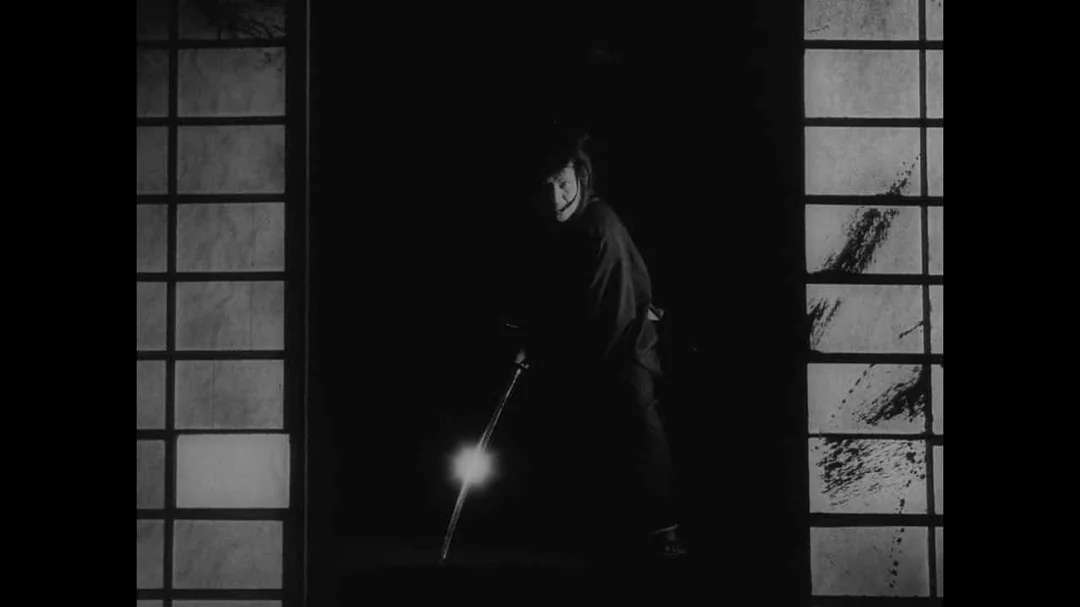
"What compels a man to descend into madness? At what point does he abandon reason to pursue the unspeakable? Man is never more dangerous than when blinded by his own rage. From such darkness emerge acts so brutal that they expose how fragile the boundary is between humanity and monstrosity. The criminal acts that follow become less a rational decision than an eruption of the unconscious."
"Gengobe is pursued at night by an unseen force through the village. As he's running, he constantly glances back. We see variations of the same shot of him looking back over and over again. Each cut is a different take presented from a different angle. Lanterns drift toward him. Their carriers appear hidden in the shadows, as though the flames themselves are hunting him."
"He breaks into a house in fear of being caught. As he gropes through the darkness calling out for a woman called Koman, Gengobe's foot strikes something. On the floor lies a severed hand. He looks up and sees a room filled with corpses. The corpses are scattered around an unconscious woman. It's Koman. We see blood spilling from her mouth. He then sees himself suspended from a noose. The last trace of light is consumed by darkness. Gengobe wakes up."
Unconscious violence propels a man toward madness, showing how rage can transform rational acts into brutal eruptions of the unconscious. A night pursuit of Gengobe unfolds with repeated shots of him looking back, each cut presenting the same action from a different angle. Lanterns and hidden carriers create an effect of flames that stalk him. In fear he breaks into a house and discovers a severed hand and a room of corpses surrounding an unconscious woman, Koman. He envisions himself suspended from a noose, then wakes to the woman alive, collapsing dream and reality into savage imagery.
Read at Roger Ebert
Unable to calculate read time
Collection
[
|
...
]